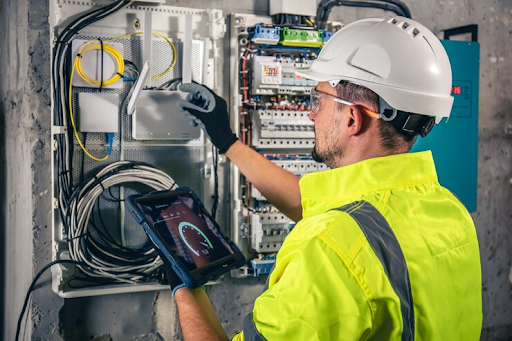Commercial electrical repair technicians play a crucial role in maintaining the electrical systems of businesses and organizations. Their expertise ensures that electrical equipment and systems operate efficiently and safely, minimizing downtime and preventing potential hazards. To excel in this field, professionals need a combination of technical skills, practical experience, and qualifications that equip them to handle the unique challenges of commercial environments.
Technical Expertise in Electrical Systems
A deep understanding of electrical systems is fundamental for commercial electrical repair technicians. They must be proficient in interpreting electrical schematics, diagrams, and blueprints to identify issues and plan effective repairs. Knowledge of various electrical components such as transformers, circuit breakers, and switches is essential for troubleshooting and replacing faulty parts.
Diagnostic and Problem-Solving Skills
Effective troubleshooting is at the core of commercial electrical repair. Technicians must possess strong diagnostic skills to pinpoint electrical problems accurately. They analyze symptoms, test circuits, and use diagnostic tools like multimeters and oscilloscopes to determine the root cause of electrical issues. Problem-solving abilities enable them to devise efficient repair strategies and ensure systems are restored to optimal working condition promptly.
Compliance with Electrical Codes and Regulations
Adherence to electrical codes and safety regulations is paramount in commercial settings to prevent accidents and ensure compliance with legal requirements. Technicians must stay updated with national, state, and local electrical codes applicable to commercial installations. This knowledge guides their work, ensuring installations and repairs meet safety standards and pass inspections without issues.
Proficiency in Electrical Repair Techniques
Proficiency in repair techniques is crucial for efficiently addressing electrical faults in commercial settings. This includes soldering, splicing wires, replacing components, and rewiring circuits as necessary. Technicians must demonstrate skillful execution of these techniques while prioritizing safety and maintaining the integrity of electrical systems.
Knowledge of Commercial Electrical Equipment
Familiarity with a wide range of commercial electrical equipment is essential for repair technicians. They work with HVAC systems, lighting fixtures, motors, generators, and other specialized equipment found in commercial buildings. Understanding the operational principles and maintenance requirements of these systems enables technicians to diagnose faults accurately and implement effective repairs.
Safety Protocols and Hazard Mitigation
Safety is paramount in electrical repair, especially in commercial environments where the stakes are high. Technicians must adhere to strict safety protocols to protect themselves, coworkers, and building occupants from electrical hazards. This includes proper handling of electrical equipment, wearing personal protective equipment (PPE), and following lockout/tagout procedures when working on energized systems.
Communication and Interpersonal Skills
Effective communication is essential for commercial electrical repair technicians to interact with clients, coworkers, and supervisors. They must accurately convey technical information, explain repair procedures, and provide updates on work progress. Strong interpersonal skills enable technicians to collaborate effectively within teams and establish rapport with clients, fostering positive relationships and ensuring customer satisfaction.
Time Management and Prioritization
Commercial electrical repair often involves handling multiple tasks simultaneously and responding to urgent repair requests promptly. Technicians must possess excellent time management skills to prioritize tasks, allocate resources efficiently, and meet deadlines. The ability to work under pressure while maintaining quality standards is critical for delivering timely and effective solutions to electrical issues.
Education and Training
Formal education and training provide the foundational knowledge and skills required for a career in commercial electrical repair. Many technicians complete vocational training programs, apprenticeships, or associate degree programs in electrical technology or a related field. Continuing education and certifications, such as those offered by organizations like the National Electrical Contractors Association (NECA), enhance skills and demonstrate competence to employers and clients.
Hands-On Experience and Apprenticeships
Hands-on experience is invaluable for commercial electrical repair technicians to apply theoretical knowledge in real-world scenarios. Apprenticeships under experienced professionals provide practical training and mentorship, allowing technicians to develop proficiency in repair techniques and gain insights into industry best practices. Practical experience enhances problem-solving abilities and prepares technicians to handle diverse challenges in commercial electrical repair.
